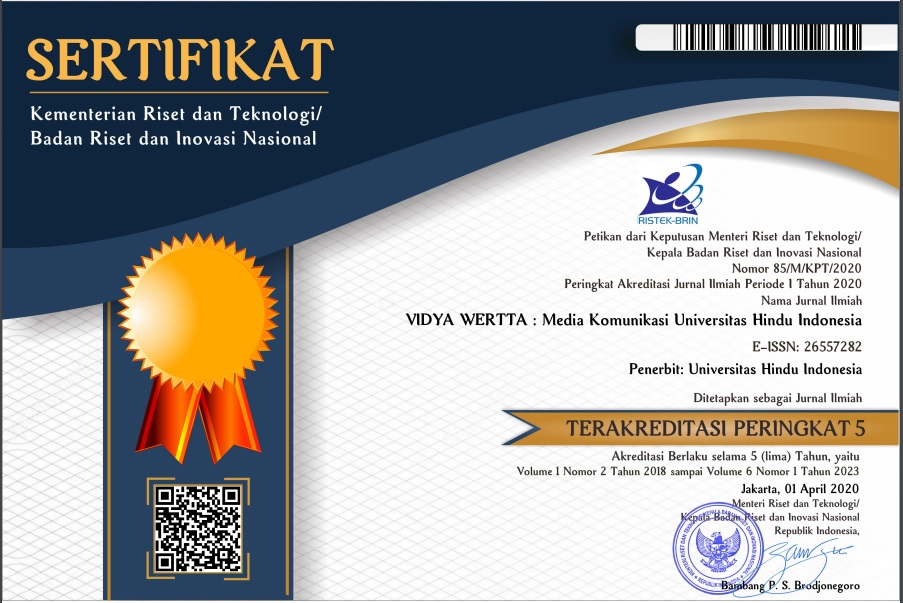EKSPLOITASI PEREMPUAN BURUH OLEH INDUSTRI GARMEN: FENOMENA GLOBAL TREN PAKAIAN MODE CEPAT (FAST FASHION)
Abstract
Tren pakaian mode cepat hadir secara global sejak dua dekade terakhir dan kian bertahan hingga saat ini. Pakaian mode cepat merupakan tren pakaian musiman yang berada di banyak toko retail, baik secara fisik maupun daring, serta memiliki harga relatif murah. Namun dibalik harga pakaian murah serta beragam model yang cepat berganti, terdapat proses industri yang harus bermodalkan biaya seminimal mungkin. Kualitas buruk pakaian serta biaya murah pekerja menjadi hal yang dikorbankan untuk menghasilkan pakaian mode cepat. Perempuan buruh menjadi subjek paling tertindas oleh fenomena global ini, sebab keberadaan mereka sebagai pekerja perempuan di pabrik kerap diiringi dengan berbagai kekerasan yang terus menerus terjadi seperti perlakuan kasar dari atasan, jam kerja yang berkepanjangan disebabkan oleh target yang tinggi, hingga upah rendah yang tidak seimbang dengan beban kerja. Untuk mempelajari mengapa perempuan buruh kerap dianggap sebagai subjek paling tertindas dalam industri garmen global, kami membedah sejumlah penelitian terdahulu untuk menganalisis fenomena global serta kehidupan perempuan buruh yang terdampak akibat kebutuhan mereka untuk bertahan hidup ditengah keberadaan kapitalisme yang pada prakteknya, bersifat patriarkal.
References
Ayers, Alison J. 2013. "Beyond Myths, Lies and Stereotypes: The Political Economy of a ‘New Scramble for Africa’." Journal New Political Economy 18 (2): 227-157. https://www.tandfonline.com/doi/abs/10.1080/13563467.2012.678821#:~:text=New%20Political%20Economy.
Bhardwaj, Vertica, and Ann Fairhurst. 2010. "Fast fashion: response to changes in the fashion industry." The International Review of Retail, Distribution and Consumer Research 20 (1): 165-173.
Can, Bašak. 2017. "The gendered workplaces of women garment workers in Istanbul." Reproductive Health Matters: An international journal on sexual and reproductive health and rights 25 (sup1: Gendered bodies and reproduction in the Arab countries and Turkey): 47-55.
Collins, Jane. 2013. "Chapter One .A Feminist Approach to Overcoming the Closed Boxes of the Commodity Chain." Edited by Wilma A Dunaway. Gendered Commodity Chains: Seeing Women's Work and Households in Global Production 27-37.
Figueroa, Hector. 1996. "In the Name of Fashion Exploitation in the Garment Industry." NACLA Report on the Americas 29 (4): 34-41.
Fraser, Nancy. 2016. "Contradictions of Capital and Care." New Left Review 100 (July/Aug 2016). Accessed 2022. https://newleftreview.org/issues/ii100/articles/nancy-fraser-contradictions-of-capital-and-care.
Hossain, Naomi. 2019. "Rana Plaza, disaster politics, and the empowerment of women garment workers in Bangladesh." Contemporary South Asia 27 (4: Contentious Empowerment: Women, Development and Power in South Asia): 516-530.
Joy, Annamma, John F Sherry Jr, Alladi Venkatesh, Jeff Wang, and Ricky Chan. 2015. "Fast Fashion, Sustainability, and the Ethical Appeal of Luxury Brands." Fashion Theory 16 (3): 273-295.
Katz, Cindi. 2001. "Vagabond Capitalism and the Necessity of Social Reproduction." Antipode.
Khurana, Sakshi. 2020. "Redefining Norms, Exploring new avenues: Negotiations of Women Informal Workers in Delhi." International Journal of Comparative Sociology 61 (2-3): 178-199.
Mezzadri, Alessandra. 2016. "Class, gender and the sweatshop: on the nexus between labour commodification and exploitation." Third World Quarterly 37 (10): 1877-1900.
Mezzadri, Alessandra, and Sanjita Majumder. 2020. "Towards a feminist political economy of time: labour circulation, social reproduction & the ‘afterlife’ of cheap labour." Review of International Political Economy.
Ruwanpura, Kanchana N. 2011. Progress in Development Studies 11 (3): 197-209.
Shepherd, Laura J., ed. 2015. Gender Matters in Global Politics: A Feminist Introduction to International Relations. Routledge.
Ting, T Z-T, and J A Stagner. 2021. "Fast fashion - wearing out the planet." International Journal of Environmental Studies (Ahead-of-Print): 1-11.













